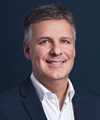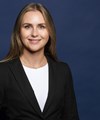As we wrote last month, there is an underlying positivity and faith in the future despite major challenges. One should not second-guess or worry about the way that things might have been. The market in July focused on the glass being half full, not half empty. The Federal Reserve raised the key interest rate by 75 basis points for the second month in a row, but indicated that the size of the next increase depends on the outcome of macro data.
The pricing in US interest rates now shows continued increases, but not at the same pace as most people thought last month. The yield on US 10-year treasuries has now gone 3.5% on June 15th to a yield of 2.65% at the close of July 29th.
In the credit market, issuance volumes have fallen sharply, with US high yield issuance volumes much lower than in 2021 and having the weakest half-year since 2009. All of this reflects the fact that the global economy is slowing down. It has already been impacted negatively by inflation, war, and China's Covid shutdowns. Preliminary Q2 US GDP figures showed negative -0.9% growth, which would entail that the US is in a technical recession.
However, the data continues to show that companies in the US and Europe have, on an aggregated basis, higher cash balances and higher interest coverage ratios than in other periods in the last 10 years, aspects concerning companies in the high yield market, so liquidity is generally good.
When we take a closer look, we see that the credit spreads have widened with less dispersion on a broad basis. In previous economic downturns, there has been larger dispersion between "worse companies" and those of higher quality. We believe that idiosyncratic risk will increase in the future when certain companies and sectors will face greater challenges. We continue to focus on higher quality companies within high yield. This month we have therefore sold our entire holding in Avya. The company has developed negatively for a period and recently secured bank financing, which is then ahead of us bondholders in priority.
With the positive inflows the fund had during the month, we have increased in Organon, Swiss Life and IQVIA.
The fund's development was very strong during the month of July, up 3.2%–3.4% depending on the currency class.
As mentioned, there was almost no new issuance in July, and the fund did not participate in any of the few new deals that came.
The strategy going forward remains having a strong focus on companies that contribute with sustainable solutions here and now.
The fund is classified as an Article 9 fund under the SFDR Disclosure Regulation.
The synthetic CDS credit index tightened during July. The iTraxx Crossover index went from +584bp at the end of June to +512bp at the end of July.
Portfolio management team:
Read our latest monthly reports
Pareto ESG Global Corporate Bond
Pareto Nordic Corporate Bond
Pareto Nordic Cross Credit
Pareto Global
Pareto Aksje Norge
Pareto Nordic Equity
Historical returns are no guarantee for future returns. Future returns will depend, inter alia, on, market developments, the portfolio manager’s skill, the fund’s risk profile, as well as fees for subscription, management and redemption. Returns may become negative as a result of negative price developments. This is marketing communication.



